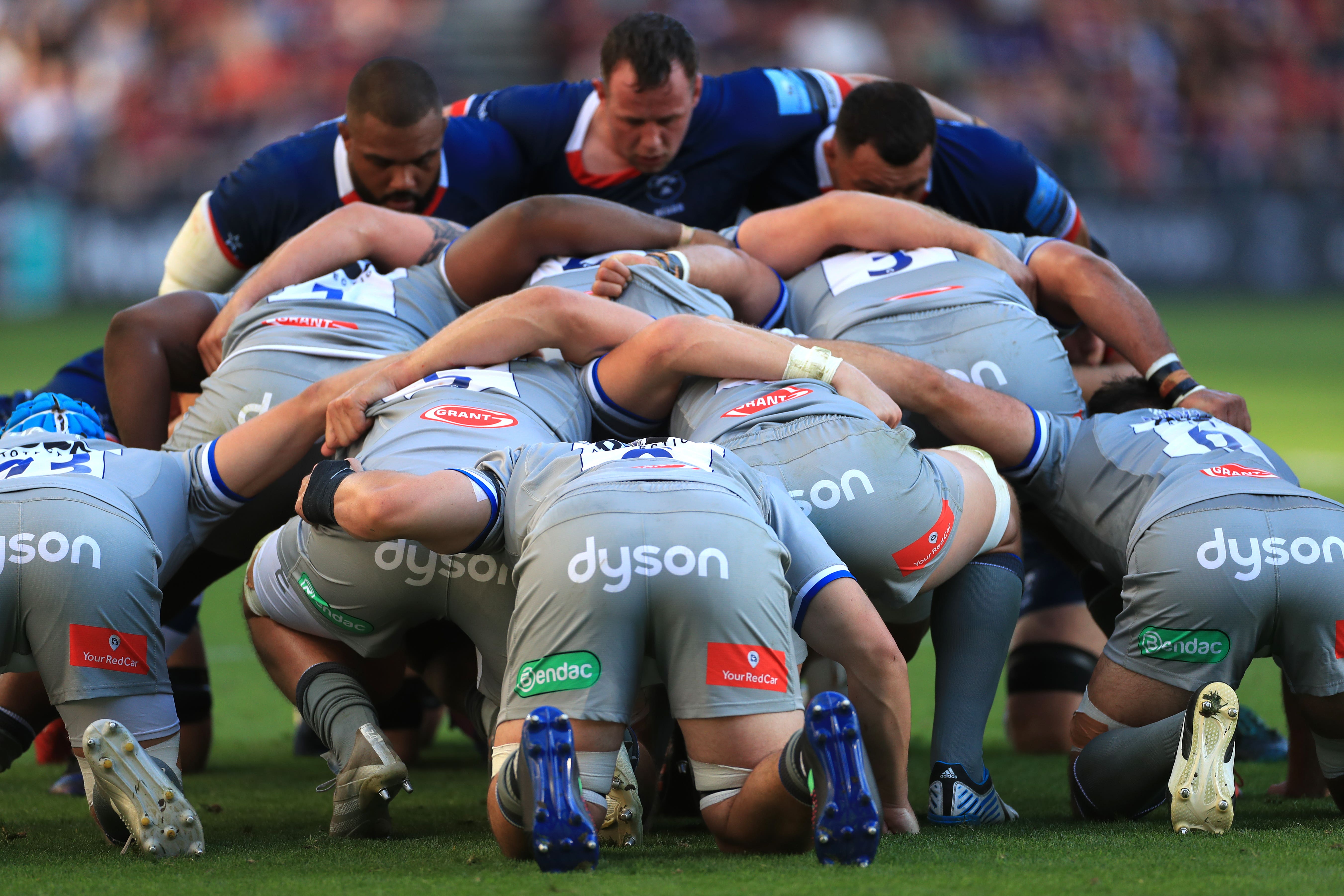Rugby players 15 times more likely to develop motor neurone disease, new research finds
Research led by the University of Glasgow found evidence of an increased risk of motor neurone disease among former rugby players

Your support helps us to tell the story
From reproductive rights to climate change to Big Tech, The Independent is on the ground when the story is developing. Whether it's investigating the financials of Elon Musk's pro-Trump PAC or producing our latest documentary, 'The A Word', which shines a light on the American women fighting for reproductive rights, we know how important it is to parse out the facts from the messaging.
At such a critical moment in US history, we need reporters on the ground. Your donation allows us to keep sending journalists to speak to both sides of the story.
The Independent is trusted by Americans across the entire political spectrum. And unlike many other quality news outlets, we choose not to lock Americans out of our reporting and analysis with paywalls. We believe quality journalism should be available to everyone, paid for by those who can afford it.
Your support makes all the difference.Rugby authorities have been told they should look to eliminate contact training and reduce rather than expand the global calendar after a study revealed concerning evidence of considerably increased risk of motor neurone disease among former players.
A study led by the University of Glasgow looking at former Scotland internationals – from both the amateur era and later professional players – found ex-rugby players had more than twice the risk of a neurodegenerative disease, and a 15-times higher risk of a motor neurone disease diagnosis.
Consultant neuropathologist Prof Willie Stewart, who led the research, said it raised immediate questions for rugby authorities to mitigate the risks.
“I am genuinely concerned about what is happening in the modern game, and that if, in 20 years’ time, we repeat this study we would see something even more concerning” Stewart said.
“Rugby has talked a lot and done a lot about head injury management and whether it can reduce head injury during (training). Those conversations have gone on a while and the pace of progress is pretty slow.
“This should be a stimulus to them to pick up their heels to make some pretty dramatic changes as quickly as possible to try and reduce risk.
“Instead of talking about extending seasons and introducing new competitions and global seasons they should be talking about restricting it as much as possible, cutting back on the amount of rugby we’re seeing and getting rid of as much training as possible.
“Things like that have to be addressed pretty rapidly.”
The study, published in the Journal of Neurology Neurosurgery & Psychiatry, compared health outcomes among 412 male, Scottish, former international rugby players and over 1,200 matched individuals from the general population.
It was part-funded by the Football Association and Professional Footballers’ Association, building on the landmark 2019 study which found former professional footballers had an approximately three and a half times higher rate of death from neurodegenerative disease than expected.
Stewart said the numbers found had come as a “big surprise” and more work – including a broader study – was now needed to fully understand their meaning, although the immediate message for the game was clear.
“The hypothesis we’re working on is that head injury exposure in sport increases the risk of neurodegenerative diseases and we’re finding that over and again,” he said. “The story we’re getting from all evidence is that exposure to head injuries is a risk we need to do something about.
“The modern game from 1995 onwards has seen that that head injury exposure go up and up and up as far as I’m concerned.”
Asked what steps should be taken within the game, he added: “Contact training during the week should be viewed as virtually a thing of the past, getting rid of as much as possible.
“Look at the number of matches being played and ask, ‘Is this credible that young men and women can be playing week-in, week-out, for the majority of the year just for entertainment?’…
“I know it’s tough to think about there being less rugby rather than more but maybe less is more if you see better quality rugby, the players are less damaged and fitter.
“You can’t continue to put young men and women through what they’re being put through now we know even from the amateur era there’s this risk of brain disease.”
Dr Susan Kohlhaas, director of research at Alzheimer’s Research UK, called for further research into head injuries in sport.
Research that points the way to understanding and minimising the risks associated with head impacts, and how to balance these against the undoubted benefits of physical activity, is challenging but essential.
She said: “It’s concerning to see research identify former male rugby players as being at increased risk of dementia, and at particularly high risk of the neurodegenerative condition motor neurone disease.
“There are still uncertainties over the exact size of the risk – for example, since motor neurone disease is a rare condition, there were no cases of MND in the aged-match controls and so much larger studies are needed to paint a clearer picture.
“Research that points the way to understanding and minimising the risks associated with head impacts, and how to balance these against the undoubted benefits of physical activity, is challenging but essential. At Alzheimer’s Research UK, we have outlined the most important priorities for researchers to complete the picture, including studying the impact of head injuries in women, at grass roots, and in the modern game, none of which were the focus of this research.
“As the leading dementia research charity, we’re already kick-starting further research into brain injury and the long-term risks of dementia with £500,000 of investment.”
Join our commenting forum
Join thought-provoking conversations, follow other Independent readers and see their replies
Comments